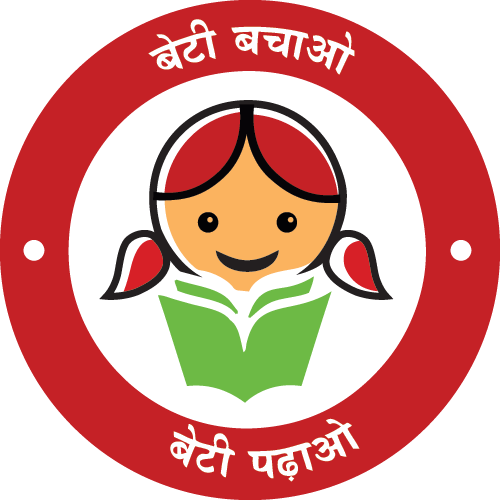IMPORTANT COURT INTERVENTIONS - INQUIRIES
The National Commission for Women can and it has intervened in some important court matters.
- BHATERI GANG RAPE CASE ( RAJASTHAN )
The Commission suo moto took up the case of Ms. Bhanwari Devi and extended its full support in going for appeal and also providing security to the victim and appointment of a special public prosecutor to argue her case. Bhanwari Devi was a "Sathin" associated with WDP in Rajasthan who was raped in retaliation for her intervention in a child marriage in September 22,1992.
- CAPITAL PUNISHMENT/ DEATH PENALTY (RAMSHREE'S CASE)
Due to the timely intervention of the National Commission for Women in the Supreme Court, the order of death sentence was temporarily stayed and the Hon'ble Court, later on commuted the death sentence into life imprisonment.
- OBSCENITY CASES
-
The Hon'ble High Court of Delhi put an injunction on the launching of +21 adult channel by the Ministry of Information & Broadcasting, Govt. of India.
-
The NCW had moved the Hon'ble High Court of Delhi against Star TV, Zee TV, etc for showing obscene pictures on television and other media.
-
- AGAINST OUT DATED CUSTOMS & TRADITIONS MAIMON BASKARI'S NUH ( HARYANA ) CASE
The NCW took up the case of Ms. Maimon Baskari who was allegedly a victim of torture and rape for marrying a person of her choice. The Supreme Court has united the couple.
- DIVORCED MUSLIM WOMEN'S ENTITLEMENT TO MAINTENANCE BEYOND THE IDDAT PERIOD :
In the matter of Fakhruddin Mubarak Shaik Vs. Jaitunbi Mubarak Shaik, The NCW has intervened in the Supreme Court of India to support the stand of Jaitunbi. The case is pending.
- NCW FILES APPLICATION SEEKING REVIEW OF SC JUDGEMENT:
In the matter of Y Abraham Ajith Vs Inspector of Police , Chennai and Anr 2004 III AD (CRL) SC 468 , The Supreme Court on hearing the contention of the parties and examining the relevant Sections of the Cr. PC i.e. Section 177 ordinary places of inquiry and trial /section 178 places of inquiry and trial , Held that no part of cause of action arose in Chennai and therefore, the magistrate at Chennai had no jurisdiction to deal with the matter particularly when the alleged offences are not continuing offences and accordingly quashed the proceedings with liberty to the complainant to file the complaint in the appropriate court.
The decision of the Supreme Court raises a relevant issue, particularly in cases of marital discords, as to whether the case should be heard in the place of occurrence of the offence or where the women erred against is residing. Ordinarily, matrimonial discords and animosity, leads to the wife being forced to reside at the residence of her parents, which may be located at other place and unconnected with the place of occurrence of alleged offences. Therefore in cases where the women is thrown out of her matrimonial home and / or forced to reside with her parents at some other place, then the requirement that the complainant may file the complaint only at the place where the alleged offence was committed, appears to be harsh and may also in cases subject her to insecurity besides the unnecessary expenditure.
- SUPREME COURT SEEKS NCW VIEWS ON COMPULSORY REGISTRATION OF MARRIAGES
In the matter of Smt Seema Vs Ashwani Kumar, transfer petition (civil) No 291 of 2005, the Hon’ble Supreme Court, issued notice to the Commission, for placing its views on the registration of marriages and the proposed legislation prepared by the commission. The commission filed its reply along with the draft law on compulsory registration of marriages and the Hon’ble Court in its judgment dated 14th February 2006 observed that “as rightly contended by the National Commission for Women, in most cases non registration of marriages affects the women the most and directed the states and central government to initiate steps including framing of the rules for registration of marriages“
- PETITION FILED IN SUPREME COURT AGAINST THE DELHI HIGH COURT JUDGMENT IN SHIKHA SHARMA'S CASE
Recent judgment of the Honble High Court of Delhi wherein, the marriage of two young girls of 15 and 16 was held to be valid. While the judgement took into account the peculiar facts and circumstances of that case and the fact that no purpose would be served if the case of rape proceeded and keeping a lawfully wedded husband in judicial custody, it brought into open the wide disparities within various legislations dealing with the minimum age for marriage, the definition of a child, the age to give sexual consent and the effect of child marriage in certain cases.
The Hon’ble High Court of Delhi in two petitions for habeas corpus, basing on the existing provisions of law, a young girl of 15-16 was allowed to bear a child and her marriage was legalized. This judgement, though protested by many, was passed within the realms of the existing law. However, it raised larger questions of public interest and particularly the health of the girl child keeping in mind the high rate of maternal mortality especially in the age group of 15-22.The petition seeks to highlight the disparities in various legislations, particularly the Child Marriage (Restraint) Act 1929, The Hindu Marriage Act 1955, and the explanation to Section 375 of the Indian Penal Code, 1890 as the well as the Shariat law, the Indian Divorce Act, 1869 and the Juvenile Justice (care and protection of children) Act 2000.
The petition raises the following questions of law of general public importance which needs to be adjudicated.
A. Whether the provisions of Section 375 and 376 of the Indian Penal Code are in conformity with the Child Marriage (restraint) Act?
B. Whether the Hindu Marriage Act is in conformity with the Child Marriage (restraint) Act?
C. Whether allowing sexual intercourse by a man with a girl as young as 15 years contravene the principles of the Juvenile Justice (care and protection of children) Act, 2000 as well as the Child Marriage (restraint) Act, 1929?.




















